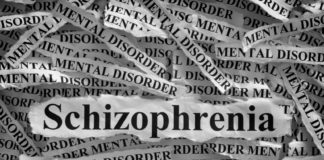Tag: stigma
When Medication Changes More Than Symptoms: Antipsychotics’ Effect on Identity
Recent research reveals how antipsychotic medications can significantly impact users' identity and self-image, challenging existing clinical approaches.
Psych Concepts Creep Into Our Everyday Experiences: An Interview with Nicholas...
MIA’s Ayurdhi Dhar interviews Nicholas Haslam about how psychiatric terms get diluted and creep into everyday language, altering our experiences.
Responsibility Without Blame in Therapeutic Communities: Interview with Philosopher Hanna Pickard
Hanna Pickard on the elusive middle ground between personal responsibility and systemic factors in our understandings of addiction.
Current Anti-Stigma Campaigns Hinder Withdrawal from Psychotropic Medication
Anti-stigma campaigns reinforce a belief that people with mental health issues must have treatment and thus, push discussion of withdrawal and negative aspects of psychiatric drugs into anonymous spaces.
Not Stigma, Privacy: Why I Write Under a Pseudonym
If I disclose my situation, then professionally, the attributional association of “the therapist with schizophrenia“ will necessarily and inevitably follow. But this is not who I am. Rather, I am a therapist with a private medical issue and I prefer to maintain its confidentiality—no further justification needed.
The Cost of Being Psychotic in America
People living with psychosis—people like me—are dying because we are being discriminated against by people who’d rather see us hurt than attempt to work with us and give us the decency and respect that should be accorded us as a human right. And nobody deserves to be assaulted or shot after they’ve reached out for help.
The Psychiatric Narrative & The Boston Globe: Violence, Force, & Derogatory...
The Boston Globe recently published an atrocious opinion piece, “Massachusetts law meant to protect people with mental illness may make them sicker.” Though framed as an attempt to shed light on a need for better mental health laws, the piece insults those of us of who have been labeled with mental health diagnoses.
New Review Finds Lancet Global Mental Health Report Misguided
A new critical review of the latest Lancet global mental health report finds that while the movement claims to take a public health approach in its rhetoric it continues to focus on culturally inappropriate individual-level interventions.
“Please Be Normal!” My Experience Working for NAMI
At my job with a NAMI affiliate, I heard daily from people who looked at family members with “mental illness” as non-people, non-human, the “other.” In the office, it was no different. If NAMI had a tagline, it would be “Please be normal like us.”
Stigma and Discrimination Linked to the Biomedical Model of Mental Health
Study traces the history of biomedical explanations of psychopathology to show how stigma and discrimination are reinforced when other possible explanations are ignored.
Stigmatizing Effects of the Psychosis-Risk Label
Study examines the effects on participants of being told they are at risk of developing psychosis.
Researchers Make the Case to Rename Schizophrenia
The authors outline reasons for renaming schizophrenia and the way a change can reform practice.
Psychiatry, Society and Stigma: Placing the Blame Where It Belongs
I believe that those who understand psychiatry’s self-serving claims and want to be most effective in a campaign of re-education must never lose sight of the critical role of language in the forming of public opinion. Here I will use the example of stigma to illustrate psychiatry's “War of the Words.”
How to Promote Community Inclusion in Mental Health Practice
Practitioners and public leaders identify methods and barriers for integrating those diagnosed with mental health issues into community life.
Mortification of the Self: The Impact of Stigma on Identity
This is how the vicious cycle continues: the more one internalizes stigma, the more she will distance herself from her social surroundings; the more she distances herself, the more she will experience proliferation of symptoms; and the more symptoms are present, the more others will stigmatize and "force" the person into further isolation.
How Stigma and Social Factors Drive the Negative Health Outcomes Associated...
A new study explores the interplay between social stress and quality of life for individuals self-identified with high-functioning autism.
The Impact of Mindfulness on Mental Health Stigma Resistance
A new study examines the association of mindfulness and stigma resistance among individuals with a psychiatric diagnosis.
Study Examines Voice Hearing Accounts of 499 Nonclinical Individuals
Researchers look at voice hearing experiences shared by nonclinical samples, exploring these experiences in the general population.
Don’t Tell Me to Shut Up: The “Et Tu, Brute” Stigma...
From Psych Central: "After sharing my eccentric journey to recovery in a new book, I’ve been accused of being anti-psychiatry. I’m not anti-psychiatry. I’m...
The Effect of Psychiatric Diagnosis on Young People’s Sense of Self...
A new review highlights the effects that psychiatric diagnosis has on children and adolescents’ social relationships and views of self.
Mental Health Apps May Lead to Overdiagnosis, Study Finds
A new study finds that mental health apps promote a one-dimensional view of mental health.
New Study Dispels Myth About “Mental Illness” and Violence
From Pacific Standard: "A new study published in JAMA Psychiatry dispels that relationship. Study authors Jeffrey Swanson and Charles Belden found that, not only is the connection shoddy—the 44-plus million American adults with a...
“Diagnostic Dissent”: Experiences of Individuals Who Disagreed With Their Diagnosis
Researchers investigate the first-person experiences of people who disagreed with their psychiatric diagnosis of psychosis.
Perfectionism May Lead to Significant Psychological Distress, Study Suggests
A new study suggests needing to appear perfect to others leads to mental health stigma and a higher risk of untreated psychological distress.
Anti-Stigma Campaigns Enable Inequality, Sociologists Argue
Scholars contend that stigma functions as a mechanism of power in analysis of UK Heads Together mental health campaign.

































